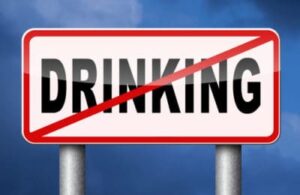Realize These 9 Health Benefits of Quitting Alcohol When you Stop Drinking For Good
Quitting alcohol can feel impossible, especially if drinking is a daily habit and you’ve been drinking heavily for a long time. Those who wonder how harmful it really is to continue drinking will be interested to know that quitting alcohol has significant physical, mental, emotional and financial benefits. It’s worth it to stop.
According to the National Institute of Alcohol Abuse and Alcoholism (NIAAA), an estimated 88,000 people die from alcohol-related causes annually, making alcohol the third leading preventable cause of death in the country. (The first is tobacco and the second is poor diet and physical inactivity.)
 Understanding the benefits of quitting drinking can encourage those who have thought about putting down the bottle to stop for good. And, knowing the health benefits of not consuming alcohol is an incentive for those considering treatment or in recovery.
Understanding the benefits of quitting drinking can encourage those who have thought about putting down the bottle to stop for good. And, knowing the health benefits of not consuming alcohol is an incentive for those considering treatment or in recovery.
When you weight the feel-good buzz of alcohol against the damaging physical, mental and emotional side-effects, there’s no question that quitting drinking is a life-saving decision.
Physical Benefits of Quitting Alcohol
NIAAA explains how alcohol harms the brain, heart, liver, pancreas, immune system and can increase the risk of certain cancers. When the New Scientist studied blood samples from a group of people who stopped drinking for five weeks, they lost weight (2%), lowered their cholesterol (5%), lowered glucose levels (16%), and decreased liver fat (15%).
The benefits New Scientist recorded from this sample study included better sleep (10%), improved wakefulness (9.5%), increased concentration (18%) and better work performance (17%).
The American Journal of Public Health stated that “Alcohol remains a major contributor to cancer mortality and years of potential life lost.”
The good news is, you can reverse the negative effects of drinking and realize the benefits of quitting alcohol rather quickly. The body has amazing regenerative capabilities. However, it’s important to know that the ability to reverse damage depends on the individual and his or her alcohol use. NIAAA notes that abstaining from alcohol for several months to one year allows structural brain changes to partially correct. Generally speaking, an alcoholic can typically detox within a week because alcohol does not stay in the body for a long period of time. The key is to seek out the proper treatment, commit to quitting alcohol and get the support you need through therapy or groups to stick to your decision. If you are someone who is not at risk for Alcohol Use Disorder (defined by NIAAA as “problem drinking that becomes severe), you may be able to stop drinking easily. Again, this depends on the individual.
Here is how quitting drinking can positively impact your body’s vital organs and reduce the risk of heart disease and cancers.
Benefit 1: Brain
Alcohol interrupts the brain’s communication pathways, impacting the way it looks and works. It slows the communication between neurons and neurotransmitters—the command pathway for the body’s major functions, including breathing and speaking. The disruptions alcohol causes to the brain can alter mood and behavior. Alcohol makes it hard to think clearly.
You will improve your mood, sleep better and be less likely to suffer from the effects of depression and other mental health issues that result when alcohol negatively impacts the brain’s cerebellum, cerebral cortex, tissue and limbic system.
Benefit 2: Heart
Drinking alcohol damages the heart and weakens its muscles. Drinking can lead to stroke, hypertension (high blood pressure), heart arrhythmia (irregular heart beat) and heart disease, including cardiomyopathy, which is the stretching of the heart muscle.
Because drinking alcohol increases the fat in the bloodstream, stopping drinking will reduce cholesterol levels. The heart won’t have to work so hard to pump blood through the body. According to the American Heart Association, men should drink no more than two drinks a day, and women no more than one drink, to maintain a healthy heart. We recommend drinking nothing to avoid risks completely.
Benefit 3: Liver
The liver breaks down alcohol that enters the body—but alcohol was never meant to be processed by the liver. So, the organ must work hard to break down the toxins. With heavy drinking, over time, the liver can become over-taxed, causing a buildup of fat (fatty liver). This is an early sign of liver disease. Fatty liver can result in hepatitis, fibrosis and cirrhosis.
The liver is an amazing organ that is highly regenerative. When given time, it can repair itself. The liver can completely repair damaged areas within 30 days, according to the University of Iowa. That said, if scar tissue develops from cirrhosis, it is not replaced with new cells. Stop drinking to give your liver a chance to regenerate now.
Benefit 4: Pancreas
Drinking heavily can cause the pancreas toxic substances. This can eventually lead to pancreatitis, when the blood vessels in the pancreas inflame and swell. Pancreatitis negatively impacts digestion. Alcohol is an inflammatory substance, so by quitting drinking, a person can reduce overall inflammation in the body—which helps prevent serious disease and cancers.
Benefit 5: Cancer Prevention
There is a strong association between drinking alcohol and several types of cancer, according to the National Cancer Institute. The more alcohol a person drinks regularly, over time, the higher his or her risk of developing an alcohol-associated cancer, such as: head and neck cancer; esophageal cancer; liver cancer; breast cancer; and colorectal cancer. By not drinking, a person can avoid increasing risk of cancers.
Benefit 6: Immune System
Alcohol stresses the immune system. Even drinking occasionally can interfere with the body’s ability to prevent illness. In extreme cases, a person who drinks heavily is more likely to get pneumonia or tuberculosis, according to NIAAA.
Those who do not drink are more likely to stay healthy and ward of sickness. Peak flu season around the corner—and stopping drinking is one more way to prevent illness.
Benefit 7: Emotional Benefits of Not Drinking
Quitting alcohol can literally clear a person’s mind and help improve mental health. Without alcohol, a person can improve sleep quality and stop exacerbating symptoms of mental health conditions like depression.
Alcohol can cause a person to withdrawal from friends and loved ones, and to stop finding enjoyment in activities he or she previously enjoyed. Alcoholics tend to distance themselves from others who might be trying to help them stop drinking. It can be a lonely life.
Benefit 8: The Financial Impact of Quitting Alcohol
By quitting drinking, a person can start fresh and press the reset button on life. They realize how harmful behavior has hurt others and can begin making amends with the past to live a healthier, happier present and future.
Drinking is expensive! According to NIAAA’s spending calculator, through its Rethink Drinking campaign, a person who consumes three drinks every day at an average $5/drink cost can spend $455 a month, and $5,460 per year on alcohol. NIAAA’s calculators will also show you how many calories you can save—so not only does quitting alcohol leave more money in the pocket, it stops extra pounds from hanging on to the waistline.
Benefit 9: Stopping for Good
Those who stop drinking report how amazed they are at how much money they were spending on alcohol daily, weekly and yearly. They have more funds to save—or to put toward better causes, whether that’s home improvements, education or a vacation.
Mental Benefits of Quitting Drinking
While some people use drinking to relieve stress, alcohol actually can have the opposite effect. Drinking is not good for one’s mental health. Alcohol numbs the brain, impacting the way that neurotransmitters fire in the brain. Excessive drinking overwhelms the body and makes it work harder—which takes a toll on an individual’s physical health (as noted) and mental health. Not to mention, when a person is under the influence of alcohol, he or she can make poor choices. This can lead to guilt, shame and remorse.
Drinking also interrupts sleep—and quality sleep is critical for stabilizing the mood. Depression and anxiety can be exacerbated by lack of sleep. Also, lack of sleep negatively impacts a person’s judgment, work performance, attitude and ability to cope with stress. Sleep is essential—and alcohol is a sleep stealer because it prevents a person from entering deep sleep cycles.
Quitting alcohol improves sleep quality—and better sleep combats depression. (After all, alcohol is a depressant.) Regarding depression, drinking can worsen the symptoms. Heavy alcohol use can also interfere antidepressants.
Ready to Quit Drinking Permanently?
Transitions Recovery Program is here to support anyone who wants more information about alcohol abuse, treatment for using alcohol, and recovery. Ask us anything. We are here to answer your questions—and provide help if you, a family member or friend needs alcohol rehab treatment. Contact us today at 1-800-626-1980 or fill out this simple form and we’ll get in touch with you. Your call is completely confidential.

















